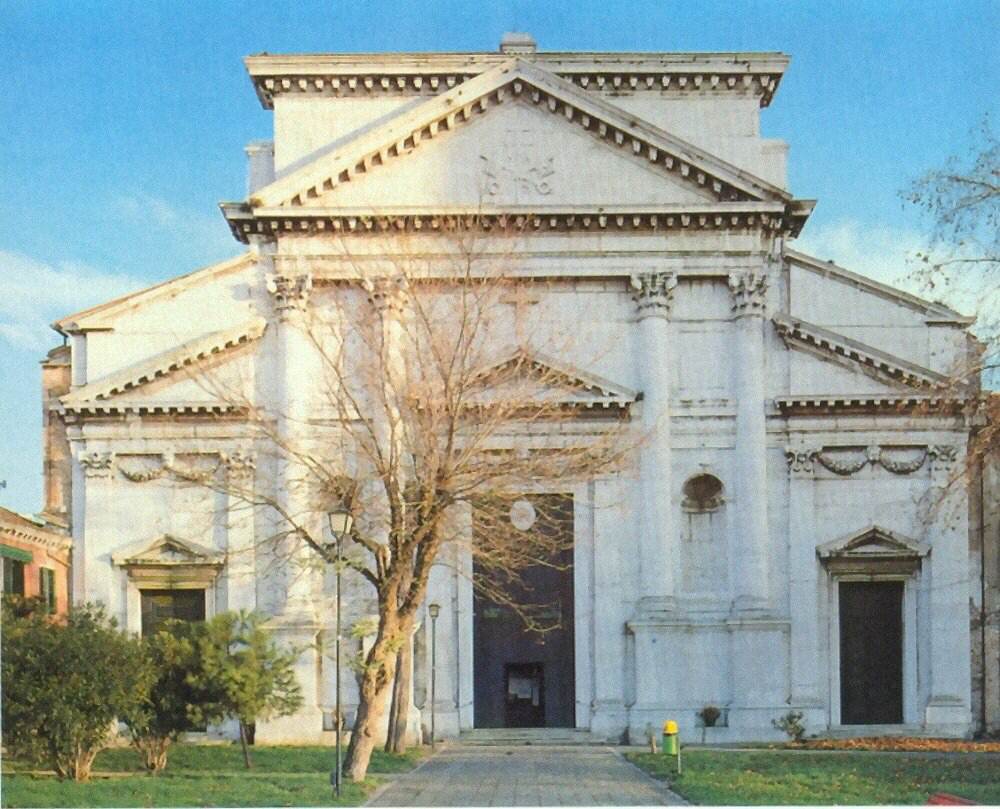Until 1807, San Pietro in
Castello was the cathedral of Venice, and its remote position testifies
to the determination of the Venetian government to keep the clerical authorities
well away from the centres of temporal power. The island of San Pietro
may be connected to the rest of Venice by two long bridges, but even today
it has a distinctly insular feel to it.
There has probably been a church
here since the seventh century, but the present building was constructed
in 1557 to a design by Andrea Palladio. San Pietro's lofty interior looks
as if it has seen better days, but it does contain some minor gems. The
body of the first patriarch of Venice, San Lorenzo Giustiniani, is preserved
in an urn elaborately supported by angels above the high altar: a magnificent
piece of baroque theatricality designed by Baldassare Longhena (1649).
In the right-hand aisle is perhaps
the church's most interesting artefact, the so-called `St Peter's
Throne', a delicately carved marble work from Antioch containing a Moslem
funerary stele and verses from the Koran. The baroque Vendramin Chapel
in the left transept was again designed by Longhena, and contains a Virgin
and Child by the prolific Neapolitan Luca Giordano. Outside the entrance
to the chapel is a late work by Paolo Veronese, Sts John the Evangelist,
Peter and Paul.
San Pietro's canalside `church green'
of scrappy grass under towering trees and a punch-drunk Gothic campanile
is a charming place to relax and have a picnic after a busy morning's sightseeing.
(
timeout.com )


